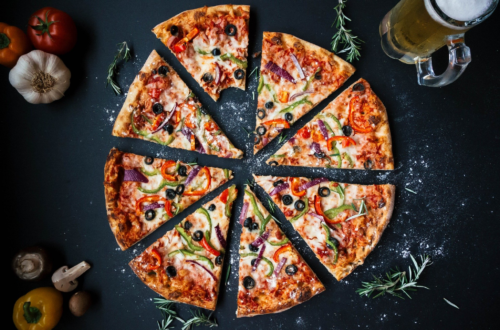
The bizarre truth about “starvation mode”
My body thought it was in danger. Apparently, it went into “starvation mode.”
After I started cutting down my calories more aggressively for an upcoming competition, my body went into survival mode.
My body started to conserve energy and I actually started gaining weight. I thought this reaction was weird since I have cut my calories in a similar fashion two years earlier.
My coach told me to take a week off from the gym to give my body a break and allow it to adjust. During that time, I lost about two pounds without changing my macros. After a week, I was able to work out again without an adverse reaction.
You may have heard of the term “starvation mode” when talking about weight loss. What is starvation mode and why did my body react like this?
What is “starvation mode?”
First, “starvation mode” is an incorrect and exaggerated description what the body is doing. Unless you are severely malnourished with no fat on your body, you are not experiencing any form of starvation.
Instead, your body is experiencing adaptive thermogenesis, or the “body’s natural response to long-term calorie restriction” (source). Adaptive thermogenesis is designed to protect from the body from reduced calories by slowing down the metabolism to prevent weight loss.
In order to lose weight, you need to burn more calories than you eat to be in order to be a calorie deficit. Over time, the body interprets the continued weight loss as danger and prevents further weight loss by slowing down the metabolism. Having a slower metabolism equates to less calories burned and a smaller calorie deficit.
If no changes are made, the body will continue to burn less energy, and eventually stopping any weight loss altogether. In some cases, some individuals might start gaining weight.
Why does “starvation mode” happen?
One reason for “starvation mode” is not adjusting your calories or exercise after losing a significant amount of weight. As a person loses weight, the amount of energy burned decreases since there is less mass. In order to continue losing weight, you would need to reduce your calorie intake or burn more calories through exercise or daily activity.
Another reason for “starvation mode” is not eating enough calories to maintain basic functions like breathing. In order to maintain those functions, the body will slow down the metabolism to conserve energy. This occurrence happens when individuals suddenly implement extreme low calorie diets.
In my case, my metabolism was different that it was two years ago and was more sensitive to rapid changes. In addition, I was already in a caloric deficit for a few months already. Temporarily stopping my workouts reduced my calorie deficit and lessened the stress on my body.
How to prevent “starvation mode”
Although there is no way to completely prevent “starvation mode” from happening, there are a few things you can do to lessen the effects:
- Use refeed days to create a temporary break from a calorie deficit
- Incorporate resistance training into your routine to increase lean muscle mass (which burns more calories).
- Eat a high protein diet to retain muscle mass and take advantage of its high thermic effect.
- Avoid crash diets.
For more assistance with prevent starvation mode, consult a medical professional, dietitian or weight loss specialist.
Summary
When an individual is in a calorie deficit for a long period of time, the body implements “starvation mode,” more accurately known as adaptive thermogenesis to prevent the body from losing more weight.
Making adjustments to your calorie intake along with refeed days, resistance training and eating a high protein diet can limit the effects.
If you are experiencing a weight loss plateau, check out my list of 5 reasons why you may not be losing weight.
Have you ever experienced “starvation mode” while dieting?






